
















WESTPAC Business Bank Chief economist Besa Deda will deliver the lunch address at WEXPO 2022. Besa is also the Chief Economist of St George Bank, Bank of Melbourne, BankSA and BT –which are other businesses within the Westpac Group.

Besa has been within the Group as a Chief Economist since 2009.
Besa is one of the Bank’s key eco nomic spokespersons in the Group and is responsible for helping to formulate views and forecasts on the outlook
for the economy, interest rates and currencies.
She manages a team of economists, gives regular presentations and often appears in the media reporting on economic conditions.
Prior to this role, Besa was with the Commonwealth Bank in special ised�economic�roles�that�covered��xed� income,�foreign�exchange,�macroeco nomics and equities. Before the CBA, Besa was with the Colonial Group.
Besa is the Secretary and Depu ty Chair for the Australian Business
Economists’ Association. She is also a member of the Melbourne Economic Forum and has previously written a regular property column for The Australian newspaper and lectured for Kaplan.
Besa will be talking about: ‘Un packing Uncertainty’. She will cover what�the�next�12-18�months�holds�for� the economy, jobs market, in Western Sydney.
Tickets are just $28 per person includes lunch. To purchase head to www.wexpo.floktu.com Besa Deda.

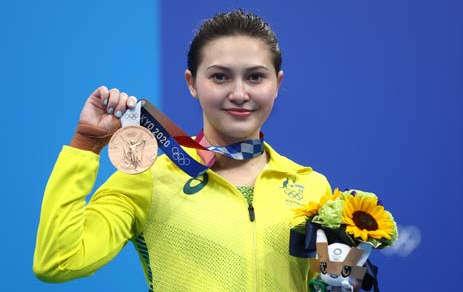

OLYMPIC diver and motivational speaker, Melissa Wu spoke to Black town News editor, Michael Walls ahead of her special breakfast pre sentation at WEXPO 2022 on October 24. Thanks, Melissa, for spending time with us. Can you tell our audience what lessons have you learnt from sport that translate into business?
How to set goals and achieve them. I always had a vision as a young athlete to compete on the world stage and become an Olympian. My passion for diving made me hungry to reach my goals and I've always been committed to doing whatever it takes to achieve success. This involves�early�mornings,�sacri�ces�(not� only from myself but also my family), discipline, hard work, commitment, per sistence and focus - not just for a short period, but over and over and over again. Resilience is key. It's not just about getting through obstacles, it's about com ing out the other side stronger. This has been an ongoing lesson for me through out my life in both sport and business and has involved a lot of hard work in the areas of mindset and mental health. I believe that the things that challenge us the most are the greatest opportunities for learning and growth. Throughout my diving career I've built resilience from constantly overcoming self-doubt and bouncing back from disappointments, and my biggest breakthroughs usually come after I've been tested the most.
During�these�times,��nding�the�strength� to dig deep and never give up has been a huge asset to me. The resilience and grit I've developed as an athlete continuously help me overcome the many hurdles and setbacks I encounter in my businesses. I always try to learn from my mistakes and draw on the strength I've shown in the
past to overcome new challenges. Always��nd�a�way. Although I've always been a hard worker and don't give up easily, in sport that's often not enough to make the podium. You need to learn how to be adaptable, whether that's �nding�a�way�to�perform�while�carrying� injuries, handling high levels of pressure and expectation, overcoming self-doubt, or learning to block out things that are outside of your control. Often, the areas I need to focus on the most go beyond my usual diving preparation and relate to things such as nutrition, mindset, life balance, injury management, strength and conditioning, or recovery. I believe it's�up�to�me�to��gure�out�what�needs� work and I don't always go about it in a conventional way. I will often delve deep into these areas through research, coming up with new strategies, trial and error, leaning on my support network, or seeking further help if nec essary. I believe there's always a way, it's just about taking a proactive�approach�to��guring� out what that is and having the persistence to keep explor ing new options.
The above lessons have translated to my business in terms of having a long-term vision, having the grit and determination to relentlessly pursue my goals, overcoming setbacks and obstacles along the way, and never giving up. Things don't always go to plan
or pan out the way I want them to, but I try�and��nd�a�way�to�make�things�work� and then stick at it until it does.
I think resilience is one of the most important characteristics of success. For me, resilience is about optimism, self-belief, willingness to adapt, and an ability to solve problems. These things are crucial to success in all areas of life and the challenges I've faced throughout my career have been a necessary part of me developing the mental toughness required to perform on the world stage. Resilience also plays a big part in my sense of accomplishment and my greatest achievements in life are linked to the hard work and dedication that went into them and what I had to overcome to succeed.
1.�Set�long�term�goals.
It might seem obvious, but many people don't set long term goals. I try and set long term goals that feel almost out of reach and are sometimes a bit scary to voice out loud. I aim high and set my sights on big things even if I know there's no guarantee I'll achieve them. By setting goals with no limits or boundaries, even if I 'fail' I will likely come close, which should still keep me headed in the right direction.
2. Break your long-term goals down
into smaller, achievable goals.
My long-term goals involve being able to achieve short term goals along the way and these short terms goals are what keep me motivated and focused each day. I regularly give myself targets to achieve and I know that everything I do today, tomorrow,�or�next�week�will�in�uence� whether or not I reach my long-term goal. Competing on the world stage for most of my life has taught the impor tance of getting the process right, so I don't make all my goals about results and performance. I try to set goals for myself that are based on improvement rather than attaching my sense of achievement solely to whether I win a medal. These types of goals are related more to my work ethic and character, which are com pletely in my control compared to where I place in a competition.
3. Goal setting is an ongoing pro cess.
I constantly set and reset goals for myself that inch me closer to my longterm goal. My goals usually change and evolve as I reach them or sometimes working towards them steers me in a completely�di�erent�direction�to�what�I� had planned. I like to set daily goals as a constant reminder of what I want to do and�so�I�can�re�ect�on�what�I�was�able�to� achieve each day. Goal setting is an ongo ing process that helps me stay motivated and accountable and is something I do so often that I don't even need to conscious ly think about anymore.
A success mindset for me is all about positivity, optimism, and self-belief. It sounds�simple,�but�it�can�be�di�cult�to� apply under the pressure of competition or the stress of balancing athlete and business life. When I'm faced with some thing that brings on self-doubt or a fear of failure, I try to overcome it by making all my thoughts and actions positive. When things aren't going well, or I face a setback, I try and approach the situation with optimism to achieve the best out come possible. Positivity and optimism are linked to my self-belief, so getting them right allows me to trust that I can get the job done and achieve success.
Thanks so much Melissa, we look forward to your presentation at WEXPO. For ticket purchase head to www.wexpo.floktu.com



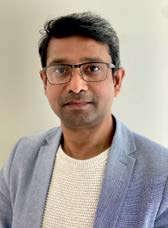














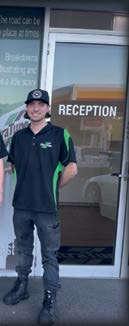

























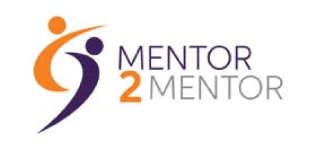


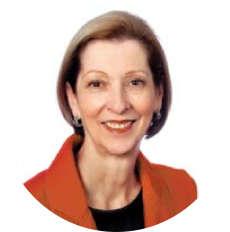


















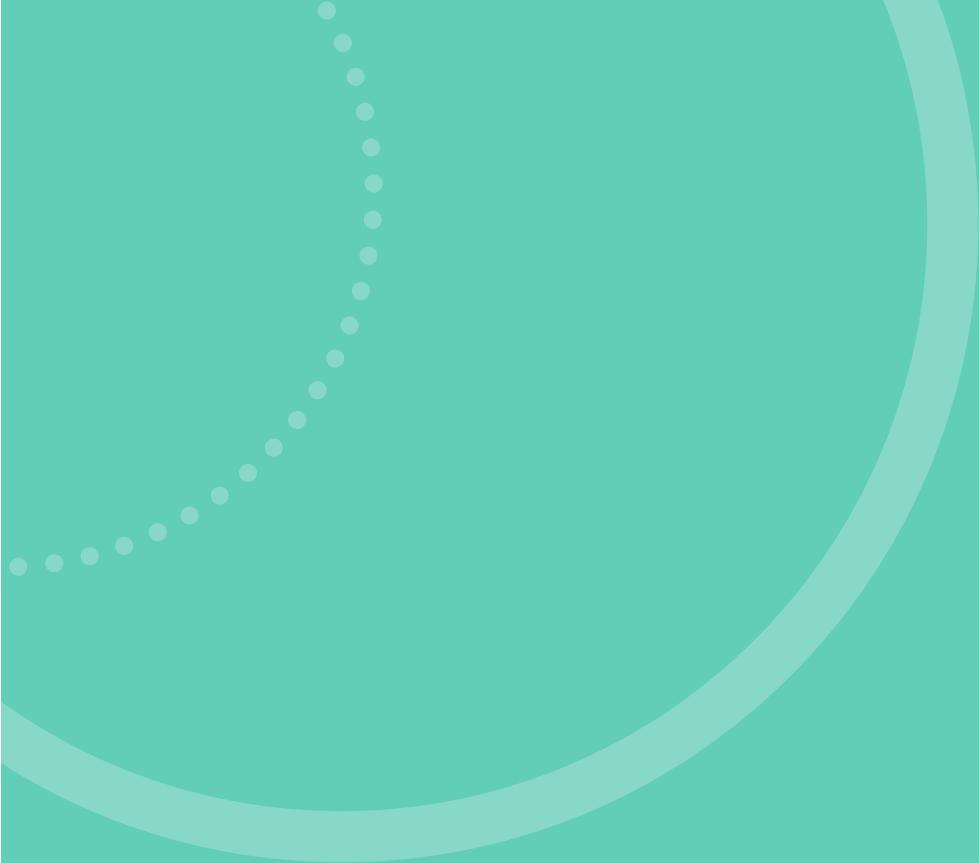




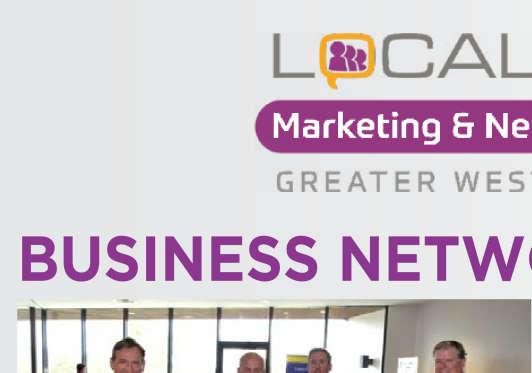

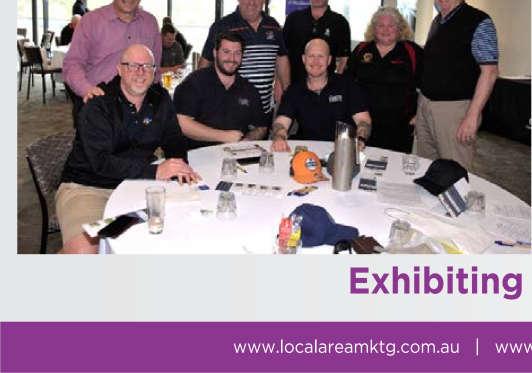
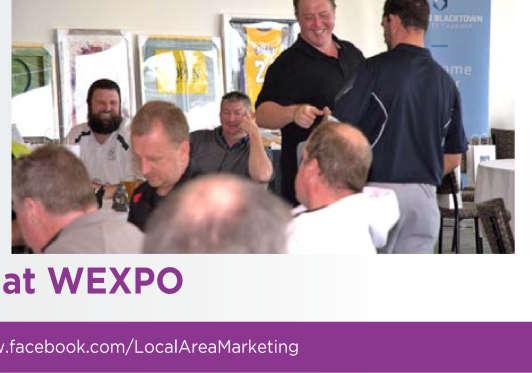




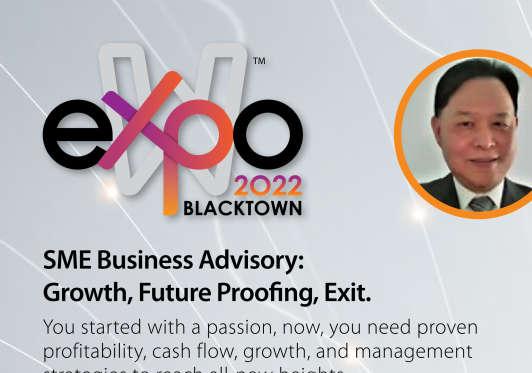
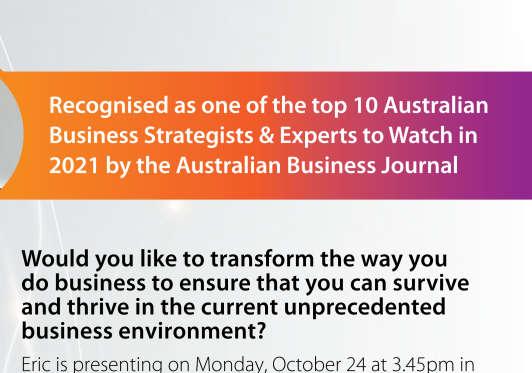
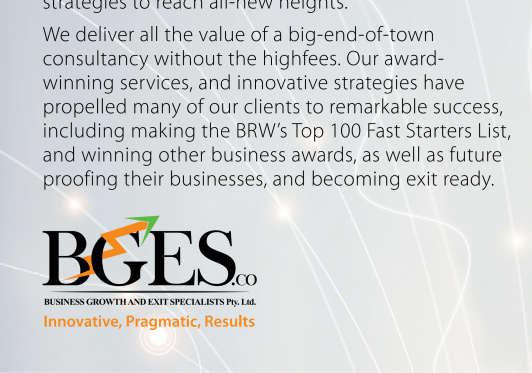
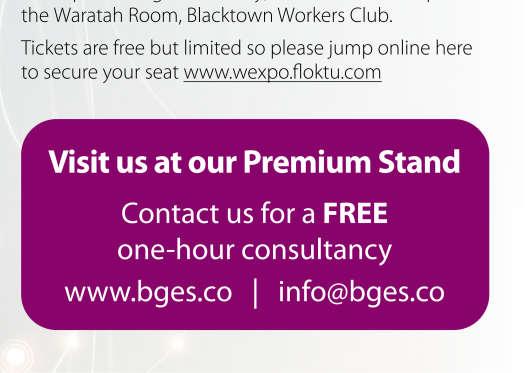






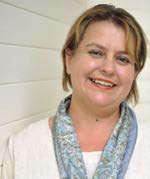








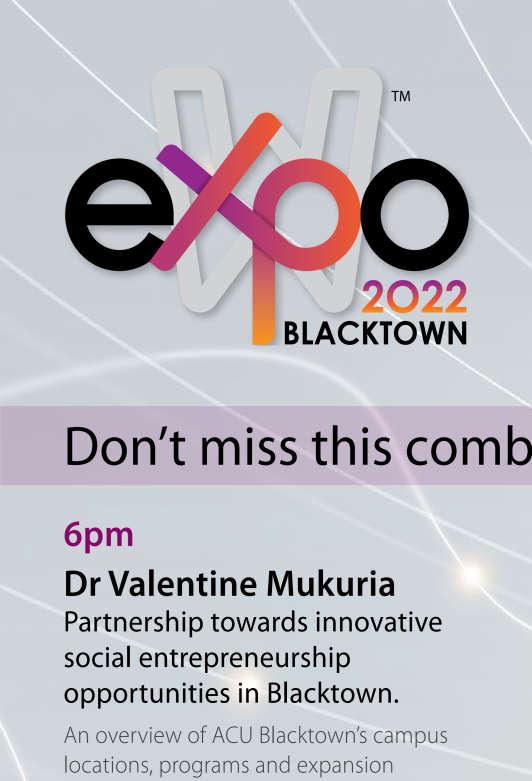
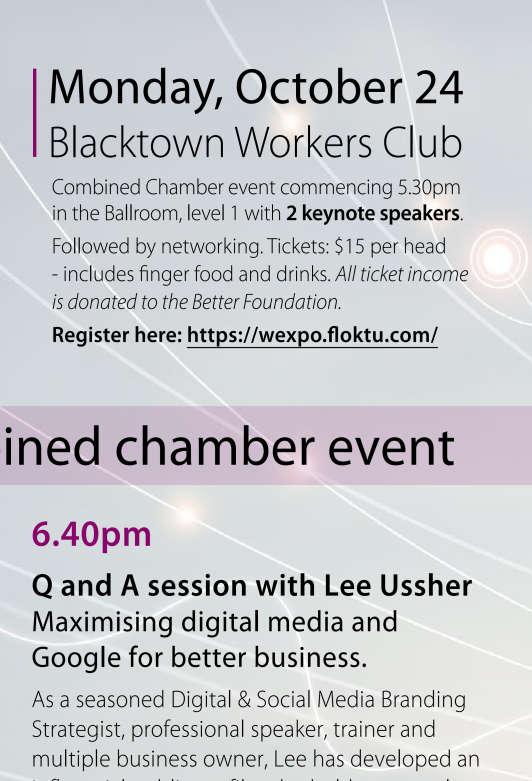
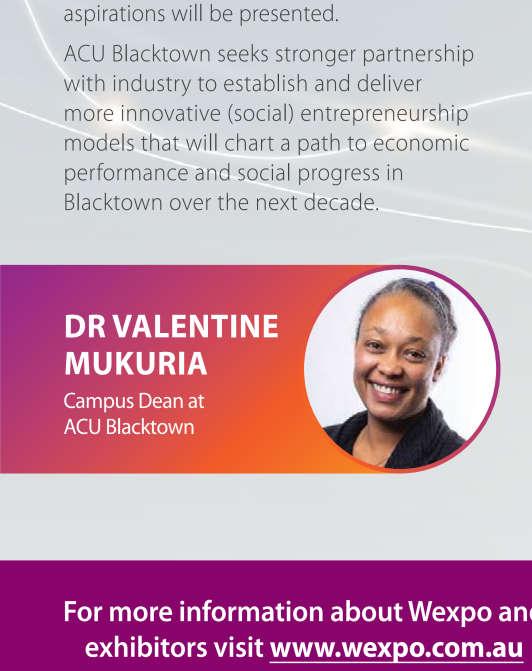

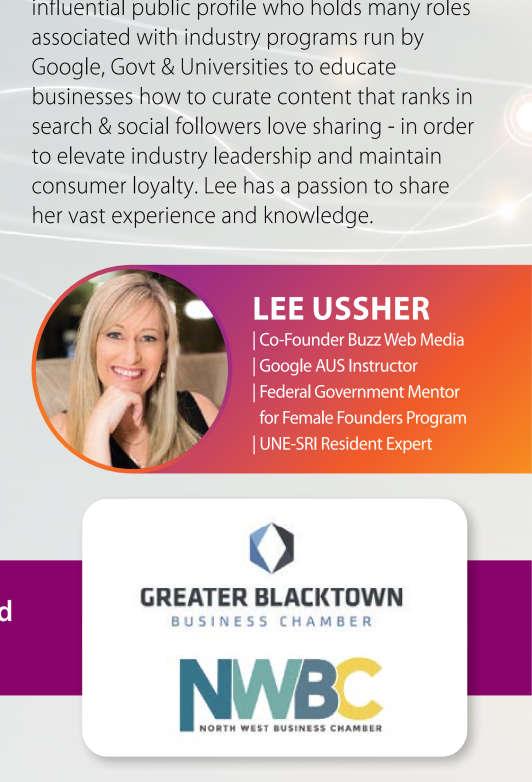
Westpac�is�Australia’s��rst�bank� and oldest company, one of four major banking organisations in Australia and one of the largest banks in New Zealand. Westpac Group’s purpose is ‘Helping Australians and New Zealanders Suc ceed’ – it’s what we do, who we are and why we come to work every day. They provide personal, business, and corporate banking.
www.westpac.com.au
You are in trusted hands. Katherine Hawes at Digital Age Lawyers is a Bar rister�and�Solicitor,�business�in�uencer,� social entrepreneur and media person ality who positively shapes her clients’ business culture. She is passionate about the need for businesses to future-proof their assets. Digital Age Lawyers is di�erentiated�through�a�primary�focus� on Digital Social Media law, policy and compliance which forms a critical aspect of�the��rm’s�Commercial�Law�services� and education.
www.digitalagelawyers.com

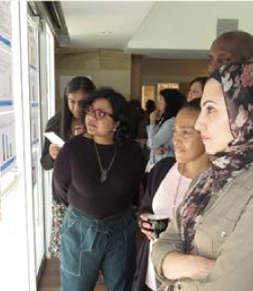
Since 1985, SydWest Multicultural Services has supported diverse refugee and migrant communities across the Greater Western Sydney. We support people of all ages and cultures, with a focus on the vulnerable and most in need. Specialising in the provision of culturally responsive care, we recognise culture and language is key to building community connections and empower ing people to reach their full potential. From our youth and family services, in cluding domestic violence support, set tlement and housing support services, employment and training, to our home care and disability services, there is a program or service for every member of the family.
www.sydwestms.org.au
QFirst Property Investment Group was founded in 2017 by real estate licensee Marites Idea Novis, along with her husband Francis Gerard Novis, from humble beginnings with one small�real�estate�o�ce�in�Blacktown,� NSW. With QFirst’s determination, dedication and commitment to provide excellent customer service and satis faction of home buyers and investors, it has been awarded as the “Best Real Estate Agency 2020”, and “Business Person of the Year 2020” to the founder of QFirst by the local government of Blacktown Council.
www.qfirst.com.au
Blacktown City Council will be providing information on the range of services provided to our community. This will include information on the support we give to businesses within the Black town local government area, the services provided to our community residents and even information on how you can join our organisation if working in local government is a career of interest.
www.blacktown.nsw.gov.au/Home
"We understand that every business has�di�erent�and�unique�needs,�that�is� why at AS Digital, we take an individu alised approach to each and every one of our clients when it comes to advertising and branding consulting. We take the time to get to know our clients and their business in order to provide the best possible service available. Come see us at WEXPO�and�see�our�how�customer-�rst� attitude�di�erentiates�us�from�the�com petition."

www.asdigital.com.au
An ACU education builds on the Catholic understanding of faith and reason working together in pursuit of knowledge and promotion of human dignity and the common good. An ACU education seeks to transform lives and communities. Students are challenged to look beyond the classroom, solve real world problems, develop their own search for meaning, and cultivate strong professional ethics. They are invited to stand up for people in need and causes that matter. Opportunities for personal and professional growth are critical to ACU. This is a university of service – so much so that it is built into the curricula. All�ACU�courses�o�er�work�placements,� internships, or volunteering opportuni ties.
www.acu.edu.au

Grow your business and your net work through quality word of mouth referrals and develop your loyal base of referral partners along with strong presentation skills at the same time! The BNI system is built on the law of reci procity, if I give business to my fellow member, they will want to give busi ness to me. The proven system is built to maximise your return and use your time�most�e�ectively�for�the�maximum� return. With over 6,000 members in Australia,�BNI�has�generated�$500�mil lion in revenue for its member last year alone. Please stop by our stall to be in the draw to win FREE BNI Membership valued�at�$2,046!
www.bnisnw.com.au
For 20 years WentWest has been part of the Western Sydney community, deliv ering support and education to primary care health professionals such as general practitioners�(GPs),�practice�nurses�and� allied health providers, working with key partners to progress the region’s health system. In July 2015, WentWest became the Western Sydney Primary Health Network�(WSPHN),�allowing�us�to�ex pand the work we do with our partners to deliver better health outcomes for the region.
EZMarketing has an extensive expertise in digital marketing, from website design to social media, we’re the ideal partner for small to medium businesses looking to improve their reach and grow their brand. As a digital marketing company and Blacktown local business, we provide our clients with a professional service that puts their business in the top spot to bring new customers in. Sign up or refer to us for SEO or social media manage ment�package�(starting�from�$499�per� month) by December 1, and you will receive a FREE holiday accommodation voucher,�valued�at�$748.
www.ezmarketing.sydney
At One Law we are fortunate to have a dedicated group of individuals who excel at what they do. With diverse industry backgrounds, cultures, and specialisations our team continues to go from strength to strength. We do things di�erently�at�One�Law.�We�have�a�great� team�of�lawyers�and�support�sta��em bodying old school values with a fresh, modern, and dynamic approach to get outstanding results for our clients. More importantly though, and something that continues to take us from strength to strength is that we treat our clients like family. Meet with us over a cup of co�ee�(and�maybe�even�a�piece�of�cake)� to discuss your circumstances and how we can help.
www.onelaw.com.au
Procuret is a B2B payment plat form that allows service providers and suppliers to get paid upfront, while their business customers pay in monthly instalments. Using the latest technolo
gy, Procuret provides a seamless online payment process that takes 2-minutes, approval is back within 15-minutes and the supplier is paid in full within 30-minutes. Our mission is to simpli fy the way businesses pay for invoices, whilst providing exceptional customer service. If you're a supplier or service provider looking to get paid faster, whilst providing your business customers with a�cash�ow-friendly�payment�option�ask� one of our partnership managers about how we can help.
www.procuret.com
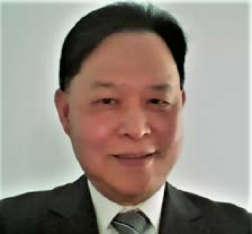
BREED Australia is the only busi ness incubator in Western Sydney that operates�as�a�not-for-pro�t.�Over�the�last� 25 years, we have empowered thousands of young Australians, small businesses, and disadvantaged community members through our work placement, education and business incubation programs. Our BREED�Business�Hub�provides�a�ordable� co-working�spaces,�o�ce�hire,�virtual� o�ce�services,�and�meeting�and�train ing rooms. Our educational platform, BREED Learning for Good, provides life-changing educational programs and workshops. We will provide special o�ers�and�a�free�workshop�on�Business� Success Principles to visitors of WEXPO as we believe in the power of entrepre neurship.

www.breedaustralia.com.au
BGES.co
Recognised as one of the top 10 Australian Business Strategists and; Ex perts to Watch in 2021 by the Australian Business Journal SME Business Adviso ry:�Growth,�Future�Proo�ng,�Exit.�You� started with a passion, now, you need proven�pro�tability,�cash��ow,�growth,� and management strategies to reach allnew heights. We deliver all the value of a big-end-of-town consultancy with out the high fees. Our award-winning services, and innovative strategies have propelled many of our clients to remark able success, including making the BRW’s Top 100 Fast Starters List, and winning
other business awards, as well as future proo�ng�their�businesses,�and�becoming� exit ready. Contact us for a FREE onehour consultancy.

www.bges.co
MITRONICS OFFICE TECHNOLOGY SOLUTIONS has been operating since operating 1994, and is a one stop shop for�all�your�o�ce�technology�require ments. We supply: computers and laptops, computer monitors, computer accessories, video conferencing, digital signage, interactive screens, business supplies, multifunction printers, wide format�printers�3D�printers,�o�ce� furniture, label printers. Mitronics is proudly Australian owned, and through our tailored technology solutions, they assist companies with the security and privacy of their documents, show them how they can improve the productivity of their employees, and through their new technologies, show them innovative ways that they can achieve both revenue growth and expense reduction.
www.mitronics.com.au
RoJo Consulting was founded by a former journalist, and an events direc tor, responding to a need in the mar ketplace for clients who want results: TV, print, and digital publicity for their brand. Our strike rate is renowned in the industry. Our clients trust us because we have decades of combined experience in journalism, events, and publicity. Our services include: PR campaigns, events, social media content, copywriting,�in�uencer�campaigns,� brand activations, and more. WEXPO visitors�can�redeem�an�o�er:�a�free�press� release�valued�at�$850*�(conditions� apply). Call: 1300 10 40 60 or email: creative@rojoconsulting.com.au
www.rojoconsulting.com.au
Cancer Council is a federated notfor-pro�t�who�works�to�make�cancer� research progress, provide information and support to those who have been diagnosed with cancer and their families, advocate to the government to make policy changes and create awareness in our community to prevent cancer. Our mission is to achieve a cancer free future and with 1 in 2 Australians to be diagnosed by age 85 it is so important you��nd�out�how�you�can�do�your�bit�to� prevent yourself getting cancer as well as help your friends and family around you. Come�and�visit�us�to��nd�out�more�about�
the exciting events we have in our local community and how you can learn to live a healthier lifestyle.
www.cancercouncil.com.au
SWR 99.9 FM
SWR 99.9 FM is your local com munity FM station broadcasting from Blacktown Showgrounds. We are a not�for�pro�t�organisation�servicing� Western Sydney for over 30 years and we survive through the support of our generous sponsors including Workers Blacktown and WEXPO. You can listen to SWR through 99.9 on your FM dial, digital platforms including iHeart Radio, our website: www.swr999.com.au or our�attached�QR�Code.�Busco�(Busco�for� Breakfast) will be coming down to the SWR 99.9 stand in the Diamond room after his breakfast show, so come and say hi and discuss how SWR can provide you with value for money radio promotions.
www.swr999.com.au
icated to designing unique solutions for your whole of business, to help position you for tomorrow’s opportunities. Our team is ready and able to assist you with all your technology and communications needs, from simple mobility or NBN, end-to-end�o�ce�relocation,�complex�IoT� or�network�design,�Microsoft�O�ce365,� web conferencing, and cyber security. We look forward to assisting at WEXPO.
Email us at: info@tbtcsydneywest.com.au
Open for people that want to do busi ness and be known, Dynamic Business Collaborators hold Monthly Networking groups for micro, small and medium business owners, to come together to build relationships and give a positive impact on other like-minded business owners, through referrals and to add value to their connections. Our focus is to meet, share and collaborate. Meetings are held on the second Tuesday of each month, at 9.30am, at Breed Business Hub, T2A Warawara Circuit, Niramba Education Precinct, Quakers Hill. Dy namic Business Collaborators is a Finalist in Strategic Connector of the Year Award for WWA.
www.dynamicbusinesscollaborators.com
Community Broadcast Network (CBN)�Design�Services.��Give�your�Brand� a BOOST with our professional design services. Our design services include: Logos, Business cards, Letterheads, With Compliment Slips, Presentation folders, Marketing��yers,�Promotional�cards,� Posters, Pull Up Banners, Infographics, Brochures, Catalogues, Annual reports, Newsletters, Magazines, Advertisements, Social media tiles, Web banners and custom creations - Just let us know what you need.
www.jujugraphics.com
At DidgeNet, we pride ourselves on providing IT services that are designed FOR people to perform their daily business activities. We understand that technology can be daunting and ev er-changing, which is why we work close ly with our clients to ensure that they get the most out of their IT investment. Our�team�of�experienced�and�certi�ed� professionals�o�er�a�wide�range�of�IT� services, from managed services to cloud consulting�(O�ce�365,�Azure,�AWS),� digital forensics, and cyber security. If you're looking for IT services in Australia that are designed to empower people and businesses, contact us today.
The Growth Engineer has a 40-year track record of achieving MASSIVE success for clients and companies. Our clients�achieve�MAJOR�pro�table�growth� in a structured program of coaching and consulting focused on incremental improvements in processes, perfor mance, and people. Our program has been battle-tested and proven over more than two decades and literally thousands of business cases to not just improve, but absolutely transform the business and lives of those who are implement it properly. WEXPO attendees can regis ter for a complimentary PAS session to unlock�a�hidden�$50,000�to�$100,000�in� 45 minutes in their business.
www.thegrowthengineer.com.au
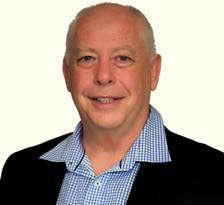
Telstra Business Technology Centre Sydney West is a full-service ICT provid er, helping clients for over 22 years, ded
Parramatta Community College has been delivering adult and community education in Western Sydney since 1986. We’re an award-winning organisation, for�social�purpose�(not-for-pro�t),�a� Registered Training Organisation and a member of Community Colleges Aus tralia. We focus on quality education for all ensure our training is accessible. We strive to deliver various courses that cre ate opportunities for all members of the community to improve their professional and personal development.
www.parramattacollege.edu.au
Content Box
www.didgenet.com
365 Care provide home care services for older Australians and people living with a disability across Western Sydney. At 365 Care, we want to help you to live a�rich�and�ful�lling�life�and�maintain� as much independence as you can. We believe in supporting you to live your life to your truest potential, supporting you every step of the way. Come visit us at our stand at WEXPO where we can tell you more about the 365 Care experience.
www.365care.com.au
We work with SME business owners who know they need to do more mar keting, but don't know what, when or how to do it. To get the results you need requires the right strategy, then the right marketing tactics which include content, design and more. First, we identify the overall marketing strategy that the busi ness�needs�to�follow�in�order�to��nd�new� clients. We then identify the right kind of tactics needed to achieve their goals. In attending our workshop presentation, attendees can learn about our 7 Steps to Small�Business�Marketing.�Our�o�er�for� WEXPO is a Total Online Presence Audit (TOPA)�for�only�$595+gst�(RRP�$995)� valid until October 31, 2022.
SuperHelp Australia is a group of accountants specialising in Self-Managed Super Funds. We have been operating for over 15 years assisting thousands of trustees of SMSFs to manage their own super. Sandra is a licensed SMSF advisor. Book an obligation free consultation with Sandra to have all of your SMSF ques tions answered.

www.superhelp.com.au
Local Area Marketing & Networking Group�(LAMNG)�has�business�network ing�groups�in�Blacktown�City�(BBN),�the� Hills district, Parramatta, Penrith and the Lower Blue Mountains. We provide a mix of monthly online and in-person meetings. Our focus is on relationship

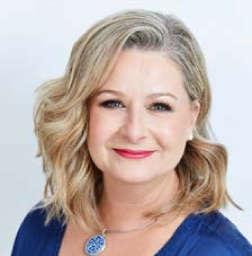
building with like-minded people. You get to exchange ideas, learn, social ise, collaborate, gain knowledge, form new relationships, get fresh business ideas and tips to expand your business network. Whether your business is in a shared�space,�shop,�o�ce,�industry,�or� home-based you will meet motivated owners and entrepreneurs to share your passion and grow your business. See us at WEXPO.
www.localareamktg.com.au
O�cers’�who�are�the��rst�point�of�contact� should clients require assistance with their support and services. Our CSOs work very closely with external stake holders, liaising and attending meetings with Allied Health and NDIS teams. Visit our booth and learn more about our services.
www.caremode.com.au
Arthur Bozikas
If you are struggling with the collec tions on overdue accounts or looking for some professional help come and visit us. We are looking to talk to business owners about�an�exciting�new�o�ering�which�is� an outsourced collection reminder sys tem. We know how important client rela tionships�are,�but�equally�how�di�cult�it� can be to call customers for payment. Let Commercial Credit Services assist via its new product “Boost Collections”.
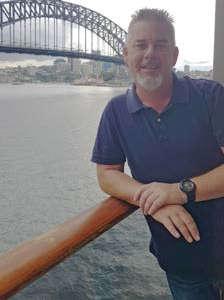
www.commercialcredit.com.au
Can�your�business�bene�t�from�the� Research & Development Tax Incentive Program? Have you developed a new product feature or design? Have you de veloped a new process or manufacturing method that is new in your industry?

You may be doing Research & De velopment that is eligible for the R&D Incentive and not even know it! If you’re eligible you can claim up to 43.5% of your costs back.
Visit
www.techabstract.com
Arthur Bozikas is a professional social justice leader for people with disability and Amazon #1 best-selling author. After his day job as the CEO for a disability organisation, Arthur was lecturing many businesses manage ment courses part-time for over seven years, at the same university he grad uated from. Additionally, he also was teaching many business management subjects as a casual teacher at several TAFE�colleges�for�eight�years,��nally� concluding all his teaching commit ments to focus more on his passion for writing��ction�novels.�The�Aussie�au thor�(from�Blacktown)�published�three� books internationally in 2021, with the fourth�(The�Book�Glasses�Series�Book�2)� to�be�released�later�this�month�(Sep tember 2022). In September 2016, Ar thur was awarded an Order of Australia Medal�(OAM)�on�the�Queens’�Honour� list because of over two decades as the CEO for a disability organisation, sup porting disadvantaged people.
At Cumberland Ford we pride our selves in being ‘The Best in the West’. Our team are dedicated to making your experience fun and you’ll feel right at home during your vehicle ownership journey.We’re a team of passionate people across all departments: Sales, Administration, and Service. Our people care about the community and do our upmost to contribute when we can. This year we’re participating in the Sydney Blackmore’s Bridge Run, R U OK? Day, WEXPO, and sponsoring the Bryden’s Lawyers Golf Day. We’re also a long-time sponsor of the Blacktown Workers Club.
www.cumberlandford.com.au
Care Mode Disability Support Services is a registered NDIS provider servicing clients in Victoria and New South Wales. We pride ourselves in working collaboratively with our clients, their support coordinators, and families, to empower, support and work towards realising their goals to ensure they achieve their real outcomes. What makes us unique, is our team of Client Service
In2Mortgages is a boutique mortgage brokerage which specialises in quality service to customers, by delivering a wide range of lending options and solu tions.�With�over�30�years�in�the��nance� industry, In2Mortgages is well placed as leaders in the industry to also serve as Mentors for new entrants into the broking industry. Broker development covers a wide spectrum of territory and so it follows that a mentor’s experience should equally span in knowledge and experience. Our mentees are supported and guided over a 24-month period. We hold ourselves accountable for their
success. Although, mentee success is not altogether one sided; our commitment to our mentees is guaranteed by being accepted into our program.
www.in2mortgages.com.au
My Skills Australia
International students. The Australian Careers�Business�College�(ACBC)�com bines training in the classroom with hands on work experience. Our in de manded Nationally Recognised Courses can earn you credit points towards Bachelor Degrees at leading universities and our training philosophy of pairing study with work placement, delivers the relevant hands-on skills that employers are looking for.
www.acbc.nsw.edu.au
Thinking of a career change? Or just wanting to do a short online course to upskill or get into a job quickly? My Skills�can��nd�out�what�training�you’re� eligible for with our 60 second Free Skills Check and you could be on your way to achieving a nationally recognised quali �cation.�You’ll�additionally�be�gifted�the� eBook “The Career Hack” guiding millen nials through all job prospects straight after school or UNI. “No one should be pigeonholed into a particular career, let’s look at all the options” - Author Simone Rennocks.
www.myskillsaustralia.edu.au
On Road Driving Education are Australia's leading experts in driver education will provide you with the skills required�to�be�a�safe�and�con�dent�driver� for�life.�We�o�er�a�wide�range�of�driving� lessons and courses in Sydney, Quean beyan, Wollongong, Newcastle, Canberra and Melbourne to suit your needs and pride ourselves in delivering quality education with an excellent and profes sional team.
www.onroad.com.au
ACBC is a Registered Training Organisation�(RTO)�No�90271.�We� o�er�fulltime�face�to�face�classes�in� our�Liverpool�campus,��exible�online� study as well as supporting Trainees to learn in their workplaces. ACBC is also approved by CRICOS as a provider for
Macquarie Community College have been�creating�and�providing�a�ordable� and inclusive learning opportunities that meet the needs of individuals, organisations and communities, for over 70 years. As a NFP Registered Train ing Organisation, we train individuals within our communities to upskill, reskill and gain new skills for work and study. Over 70% of our Child Care, Aged Care and Disability Care students graduate�with�employment�o�ers�from� the work placements that we organise. Our English, digital literacy and job seeker programs bridge the skills gaps for people seeking to study and work and includes our new program, SKILL S4You,�aimed�speci�cally�at�job�training� for migrant women. Visit our stall to �nd�out�how�we�can�help�you�with�your� training needs.
www.macquarie.nsw.edu.au
Research reveals that young people who have had four or more connec tions with people from the workplace while�they�are�at�school�are��ve�times� less likely to be unemployed or not in education in their early 20s. Inspir ing�the�Future�Australia�(ITF)�is�on�a� mission to help increase those connec tions. You and your employees can help by�o�ering�one�hour�or�more�a�year�to� visit local schools to share your career story and broaden students’ career horizons. You could change a young person’s life while putting your organ isation and industry sector on their career radar.
www.inspiringthefuture.org.au
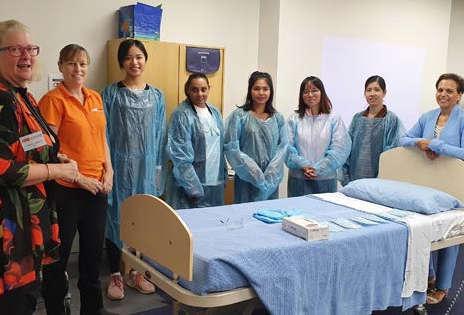

Training Services NSW works to improve training outcomes for the people of NSW. We support apprenticeships and traineeships, Smart and Skilled, and adult and community education. We're

part of NSW Department of Education. We work with industry, providers and the community on vocational education and training. This gives people practical skills and knowledge for the workplace. It can help people entering the workforce for�the��rst�time,�improving�their�skills,� or developing a new career. We provide funding, guidance and support for pro grams. This, in turn, supports economic, regional and community development.
Training Services Western Sydney –9204 7400.
TS.Parramatta@det.nsw.edu.au
TLC is committed to provide people who have disabilities with reasonable and individualised support services to facilitate access and the successful achievement of their life goals. We work hard every day for a world where children, young people and adults with disabilities are able to easily access the services they need to achieve their goals. TLC is dedicated to advancing disability rights in the community and paving the way for all individuals to be happy and healthy.
www.tlcdisabilityservices.com.au
My Business Gem Eco Ventures Pty Ltd specialises in marketing Eco Friend ly products, some of which are 100% Biodegradable, Indirectly assisting in the upliftment�of�artisans/artists�from�di�er ent parts of the world and endeavouring to�o�er�plastic�replacement�alternatives,� for a sustainable future - "Bio-Plates" are food serving plates and bowls made
from�Palm�Tree�Sheath.�Products�on�o�er� for�sale�will�be�discounted�speci�cally� during Wexpo.
www.bioplates.com.au
• Buying properties in NSW and Interstate.
• In-depth knowledge of high growth regions and suburbs.
• Above average ROI achieved through property development strategies.
• End to end management of property purchases for a stress-free experi ence.
Why people should visit you at WEXPO.

• A chance to ask any property related question to an expert.
• Receive a free investor guide upon registration.
• First 50 customer registrations to receive�$1000�o��on�our�service�fee.
• Win prizes on our lucky draw.
www.hillsandshores.com.au
Don’t have a mechanic that you love and trust? Then come meet Russell and Tammy, owners of Ultra Tune Blacktown. Our team has over 40 years’ mechan ical experience and will love your car like it was our own. Free Roadside with every manufacturer’s logbook service (conditions�apply).�Visit�us�at�WEXPO�to� get�a�$20�voucher�to�use�at�Ultra�Tune� Blacktown.
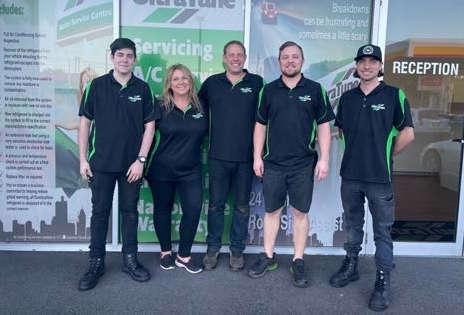
www.ultratune.com.au/location/blacktown/
"We are known for our quality, and we customise and design dresses according to customer's requirements and budget. We started our business in October 2018 just by renting out cultural dresses. Then gradually started designing our dresses as per customer's needs. And we have been Finalist in the local Business Awards for 2021 and 2022.” We are look ing forward to showcasing our designs on�WEXPO�and�o�ering�a�special�on�our� dresses: 10% - 40% discount on the day.


Transform your business with the power of Behavioural Science and Psychology. Leanne Elich Consulting is�a�business�advisory��rm�specialising� in ethical, human-centred sales strat egies, business systems, processes, and practices. Learn how to use behavioural science and psychology to develop your skills,�strategies�and�tactics�to�in�uence� consumer behaviour and accelerate your business growth. Don't miss out on Dr Leanne Elich launching her latest book: Solving the Sales Equation named “The one-of-a-kind sales tool EVERY business needs!” – Sydney Morning Herald. A special signed edition will be available for purchase: Only at WEXPO! www.leanneelichconsulting.com
At Australian Hearing & Balance Centre, they speak your language: simply advise their friendly receptionists when you call which language you speak, and they will book you in with an Audiologist that can help you. If you have tinnitus, or are having trouble hearing your loved ones, why not come in and have a full clinical hearing assessment. With a valid doctor’s referral, a consultation with them is fully bulk billed. Call them on 02 9676 8866 to book your FREE hearing as sessment�with�one�of�their�fully�quali�ed� Audiologists. You may also be eligible for FREE hearing aids.
https://www.linkedin.com/company/australianhearing-balance-centre/about/
Have you had the chance to meet and greet One Kind Box? They’re Sydney’s newest sustainable store with low-toxic, low-plastic gifts. This small business is on a mission to connect people through earth-friendly gifting. They have a range of beautifully curated gift boxes packed with Australian artisan products and ethical gifts. One Kind Box dreams of a future in which nature’s heart beats strong. With the hope of building a more sustainable future for the Earth and�sending�fewer�items�to�land�ll,�they� source small batch made gifts that are low in plastic, sustainably manufactured and easy to compost. Visit us at WEXPO this October 24th to say hello and par ticipate in winning one of their gorgeous gift boxes.
www.onekindbox.com.au

At True Blue Care, we understand the importance of staying true to yourself, expressing your genuine self and aspiring to�reach�new�heights.�Therefore,�we�o�er� bespoke services and guide you to get the best out of your NDIS plan. True Blue Care is a registered NDIS provider with vast experience in disability services. We ensure that you receive the best, per son-centric approach every single visit. True Blue Aussies doing what we do best, and that is being the lodestar of your NDIS journey. True Blue stands for being your local guide, sharing our expertise and knowledge, and tailored tools and services to lead the life you want. True to our name and mission to care for our community and support our specially abled participants to seamlessly and comfortably get back within the com munity and gain control over their space and time.
www.truebluecare.com.au
Community First has been in opera tion for more than 60 years having start ed in 1959 as the Sydney Water Board O�cers�Credit�Union�Co-Op.�Community� First�strives�to�o�er�members�something� di�erent�and�truly�puts�members��rst� in the delivery of products and services which help them achieve their person al��nancial�goals.��Today,�Community� First Bank has over one billion dollars in assets, has store locations stretching from the Sutherland Shire, the Hunter Region, Western Sydney and in between. As one of Sydney’s largest community-based credit unions, we are member owned and�run�for�the�bene�t�of�our�members,� not�for�external�shareholder�pro�t.�We� aim to continue to be an integral part of the communities in which our Members live and work.
www.communityfirst.com.au
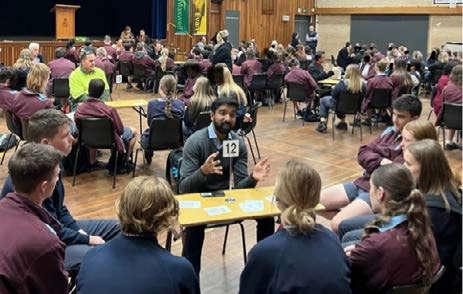 Punjabi Trenz
Punjabi Trenz is run by Harpreet Bhinder and his sister Ravneet Kaur.
Leanne Elich Consulting
Punjabi Trenz
Punjabi Trenz is run by Harpreet Bhinder and his sister Ravneet Kaur.
Leanne Elich Consulting
Coldbuster�supplies�a�range�of��oor� heating and related heating products to the Trade, Retail and DIY markets and distributes and installs throughout Aus tralia. We import and distribute only the best quality products manufactured by top international companies that invest substantial funds on new product Re search and Development in consultation with Coldbuster, ensuring leading-edge technology. Our products meet a range of European quality standards and have ISO�certi�cation�and�USA�Underwriters� Laboratory listings. The products meet Australian standards in regard to Volatile Organic Compounds and Electro Mag netic Radiation. We supply and install under�oor�heating�for�almost�all��ooring� �nishes.�All�our�under�timber,�under� tile, in screed and in slab heating cables have a 25 year warrantee. We will price match�and�beat�any�quote�for�under�oor� heating put to us.
www.coldbuster.com.au
With more than 15 years of expe rience, we are adept in the labour-in tensive�but�highly�specialised��eld�of� technology, and we excel at it. We are devoted to growing the markets where our�services�are�o�ered,�including�the� cloud, digital, software, and telecommu nications markets. We propose to serve our clients in automation, cloud services, security, and help desk support. SME Tech�Solutions�is�an�innovative�and�e� cient provider with years of experience. We at SME Tech Solutions are proud to have served diverse groups of clients from various industries. As a result of this expertise, we have a thorough un derstanding of each industry, but we are constantly searching for new approaches to address the unique issues of our cli ents.�Each�member�of�our�quali�ed�sta�� is dedicated to producing work of the highest calibre.

In addition to our expertise and trustworthiness, we also come highly recommended for our approach to work, which is one of friendliness and collabo ration.

www.smetechsolution.com.au
The Salvation Army is a Church and not�for�pro�t�organisation,�bringing�hope� to people in the community. The Salvos is an international Christian movement, united by faith and giving hope where it’s needed most. Across Australia – in cities, country towns and rural commu nities – our work touches every demo graphic and age group.
They’re involved in national issues while also bringing hope to people who may be experiencing hardship or injustice. Since their foundations in nineteenth century London, they express their faith in charitable work to provide both the spiritual and the social support. As both a church and charity, they can preach and speak about justice, compas sion, and other issues that support the welfare of others and see them as a whole person – body, mind and spirit. At WEX PO, they will showcase their community work and would love to engage and partner with local businesses to support the community better.
www.salvationarmy.org.au
We are an Australian based Business Development company that actually does the work for our clients! LBS will: Analyse and��x�your�current�sales�problems,� bring you work, and then mentor you as you grow. If you’re a business owner or manager�who�is�very�busy,�can't�a�ord�a� full-time�salesperson�OR�needs�to��ll�your� sales team’s funnel, then LBS is for you!
www.linkedbusiness.com.au

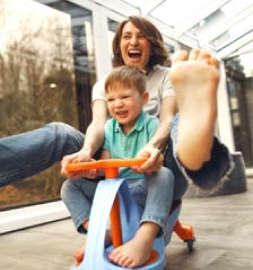
Having been in the hospitality industry since 1998 Sarah has lived and breathed all aspects of business. Her areas of passion are customer service, events and sales and marketing. Her focus and intent to always achieve success in these areas has resulted in many hours and years of learning and experience. She knows how impactful these segments are in any business. Sarah has consolidated her experience and areas of passion to create focussed training and keynote deliveries that she shares with customers, her students and the stage. She is authentic, real and passionate. She in spires her audiences and customers to shift their thinking and the way they do things resulting in impactful changes.
www.sarahbauling.com.au
Our digital marketing strategy is constantly evolving to ensure we produce exceptional results for your business. We are one of Australia’s most experienced Digital Marketing Agencies serving busi nesses worldwide for over 18 years. We are an SEO agency that helps other SEO agencies with their clients. You heard that right! Speak to one of our SEO & Digital Marketing experts today, give us a call on 1300 867 726.
www.digitalpresence.com.au
The people of Greater Western Sydney are our priority. Greater Western Sydney is home to around 2 million people. Its richness of culture is unique. Its diversi ty is inspiring. Its economy is booming. Its landscapes are breathtaking. In this space, we lead and shape social policy and�service�delivery.�We�are�de�ned�and� driven by fairness, collaboration, integrity and excellence in all we do. We advocate for and champion solutions that sustain community resilience, health and wellbe ing. We work with community groups and organisations. We partner with Govern ment across all its levels. And we join with regional and local businesses. In this way we can collectively make an impact in building a thriving and inclusive region.
www.wscf.org.au
We like to think of ourselves as an outsourced marketing department – we want to become an integral part of your business, understanding your business objectives and guiding you on digital strategy and delivering services that get results. Buzz Web Media primarily deals with Australian markets, servicing from smaller businesses right through to big brands you may recognise like Centrum & HomeWorld. Most of the work we do is brand management and digital marketing for professional services.
www. buzzwebmedia.com.au
Featuring��ve��oors�of�sporting�and� health facilities, two restaurants, multiple function rooms and sporting clubs, the Blacktown Workers Club is a premium entertainment and leisure destination in western Sydney. Due to the NSW Government’s Public Health Orders, Blacktown Workers Club and Sports Club, Blacktown has extensive safety measures in place to ensure the health and well being�of�our�members,�guests,�and�sta�.� This includes entry registration, physi cal distancing, increased cleaning, and sanitising stations. Our great facilities are just as welcoming as they’ve always been, with membership, functions, sports, and events still taking pride of place in our community.
www. blacktown.workersclub.com.au
Local�Area�Marketing�(LAM_�runs� a number of local business networking groups across Western Sydney. Unless you plan for business growth, it won't happen. Local Area Marketing & Net working Group – helps guide businesses to create you’re their own playbook for growth. Having a growth strategy is a key to growing your business. LAM groups examine for example: how do you create generate new leads and sales and website and social media management.
www.localareamktg.com.au
The Parramatta College has been at the forefront of community education in the region since 1986. We are for social purpose�(not-for-pro�t),�a�Registered� Training Organisation and a member of Community Colleges Australia. We focus not only on quality education for all, but also on ensuring that our training is ac cessible. We educate for life. This means we provide adult education opportuni ties that includes developing personal in terests, through to upskilling or reskilling for work and career.
www.parramattacollege.edu.au
If you've been looking for the perfect signage to advertise your products or in form customers of your services, then look no further than Signarama Blacktown: your full service sign centre, helping you with all your signage necessities. Signara ma Blacktown has the latest technology, producing the best quality signage while keeping your company image in mind. We can custom-make any type of sign for your business. For visitors to WEXPO we have�the�following�o�er:�10%�discount�for� all orders placed in November 2022.
www.signarama.com.au/store/blacktown
Situated in The Hills and Hawkesbury areas�of�Sydney,�Mentor2Mentor�o�ers� businesses the facilities to collaborate and communicate with other likeminded busi nesses,�to�discuss,�and��nd�solutions�for� their business issues and future planning. With small groups of 6-8 business owners, you experience an empathetic, support ive environment to share your concerns and�challenges�(and�wins!!).�Your�team�is� made of businesses from non-competitive markets,�ensuring�con�dentiality�–�an� essential key of the Mentor2Mentor group process.
www.mentor2mentor.com.au
SWR broadcasts loud, live and local 24 hours a day, 7 days a week. All our programming is produced in our studios at Blacktown and delivered to your near est radio on 99.9 FM by our transmitter at Horsley Park. Our broadcast can be received across most of the Sydney met ropolitan area. The diverse community of Western Sydney is represented by our wide variety of programming and regular outside broadcasts. There’s something for everyone on SWR 99.9 FM, check out the on-air guide and see for yourself.
www.swr999.com.au
Coldbuster Floor Heating
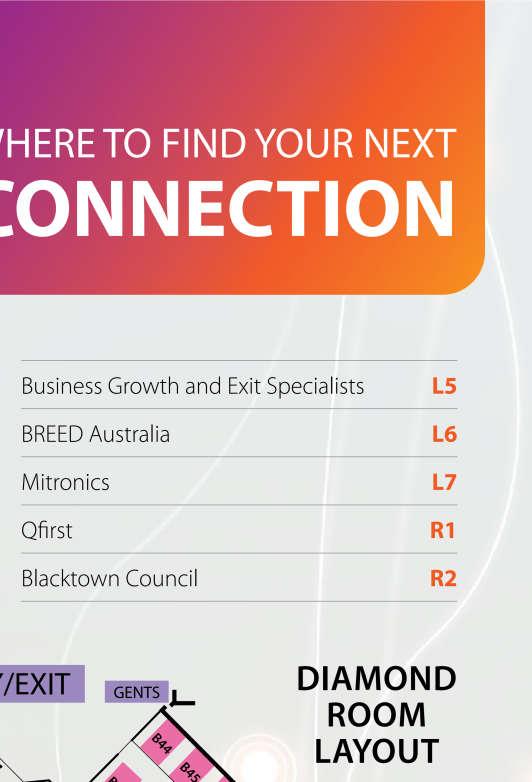
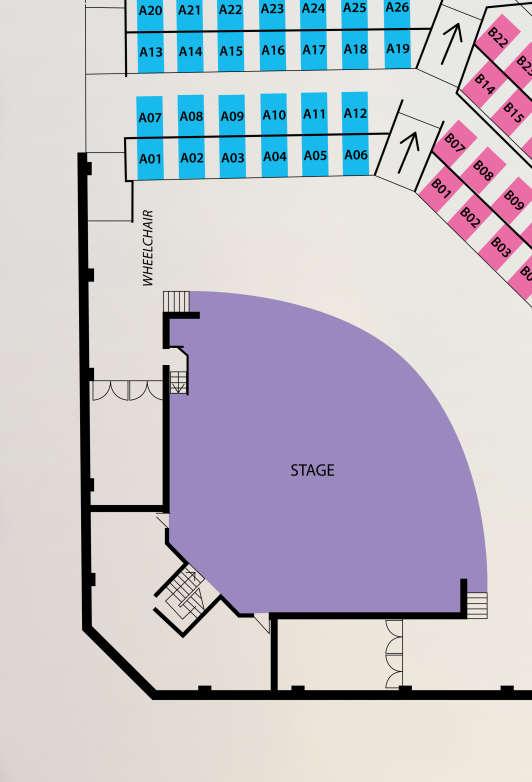
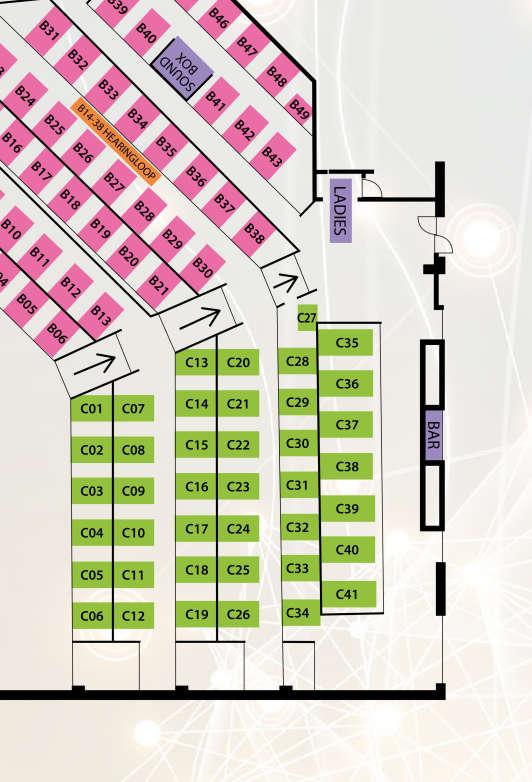

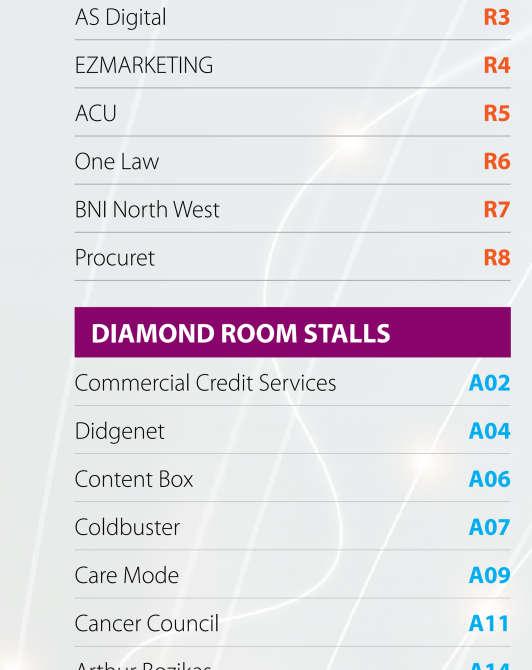

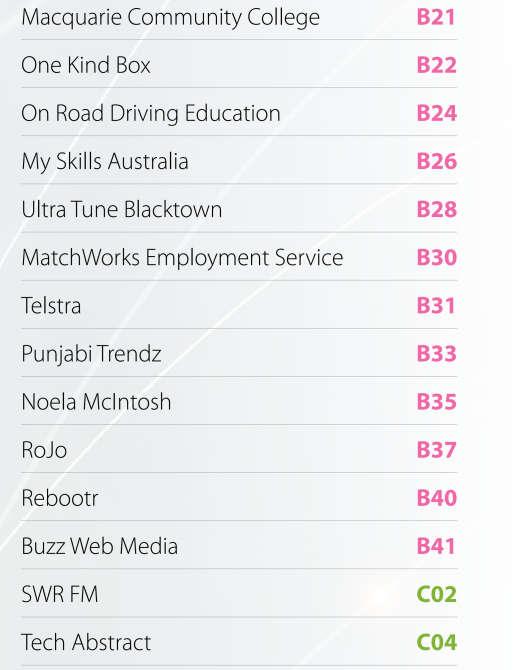
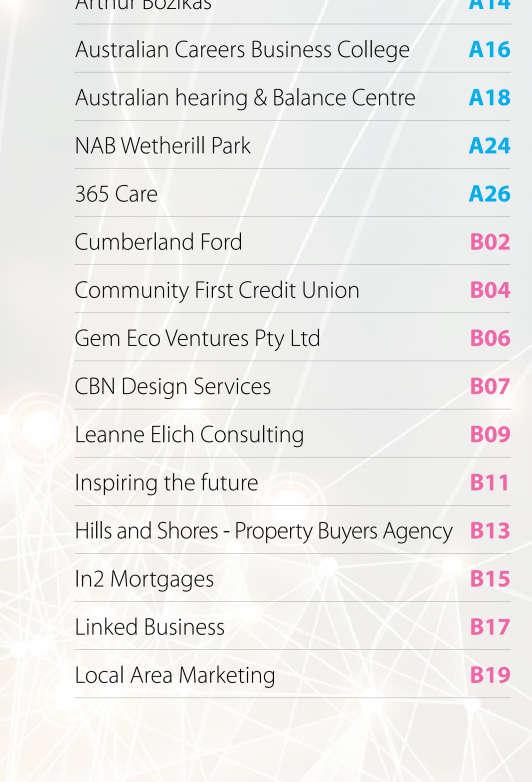
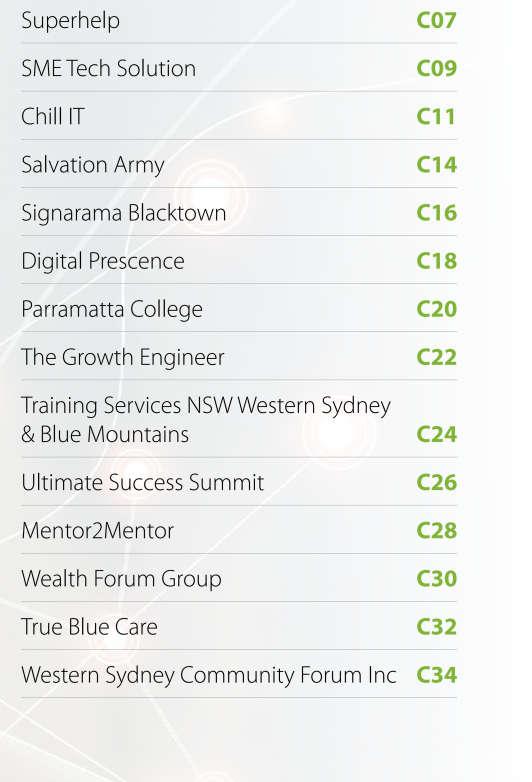
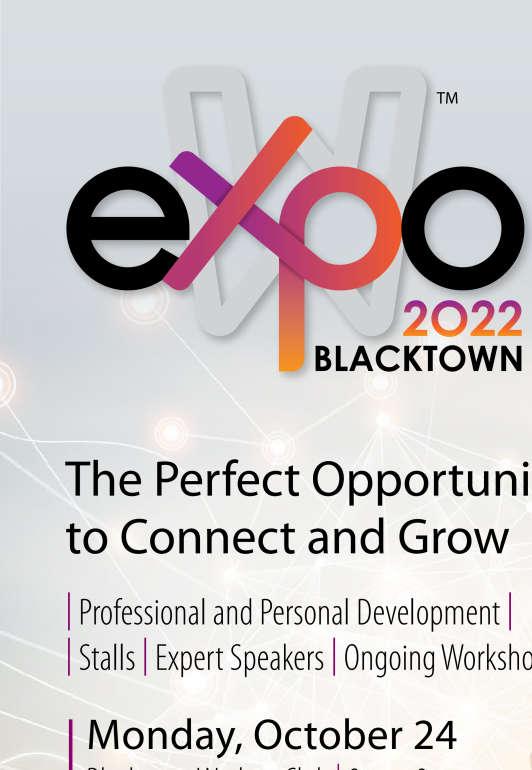
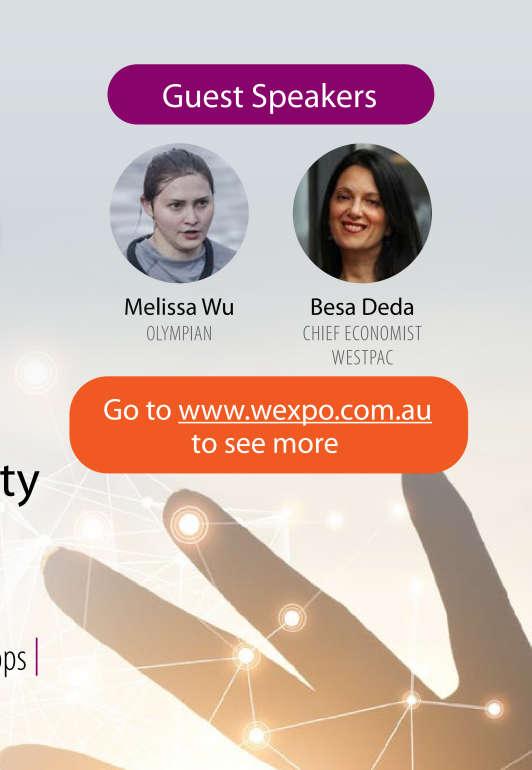




| Co-Founder Buzz Web Media



| Grow with Google Trainer





| Federal Government Mentor for Female Founders Program

| UNE-SRI Resident Expert



A FREE 45-minute Grow with Google training session brought to you by, Grow with Google trainer and Western Sydney business identity, Lee Ussher.
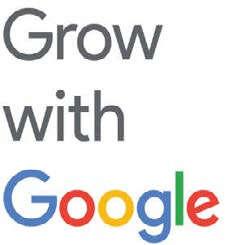
You will learn -
Practical steps to be found online with Google Search & Maps. Ways to connect with more customers using Google Ads. How to interpret data to make better business decisions with analytics.





Lee has been a seasoned professional speaker, trainer & media commentator since 2008. In 2010 Lee cofounded a brand management agency Buzz Web Media, and recently a business communications hub software Focal.Contact, to support her consulting services.
With a desire to help others shine online, she has created networks & programs to support niche industries grow. As a female founder and advocate for women in business, she founded Women With Wit (2013), an online media platform supporting & socially connecting women content creators. As an ex teacher she founded SER4KIDS (2009), an online platform supporting teachers, professionals & parents within the education sector.
Lee’s passion to share her vast experience and knowledge is also very evident in her active roles as Grow with Google trainer, Mentor for Federal Govt’s Female Founders Initiative, Resident Expert for UNE’s Smart Regional Incubator, and Advisor to Industry Schools Partnership ‘Inspiring The Future’.
Details:
Monday, October 24 Blacktown Workers Club Ballroom, Level 1. Commencing at 11:15am sharp, concluding at 12 noon.
For more info go to: www.wexpo.com.au















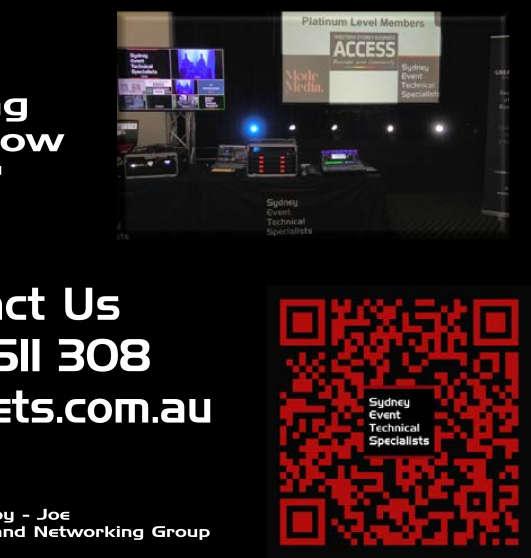



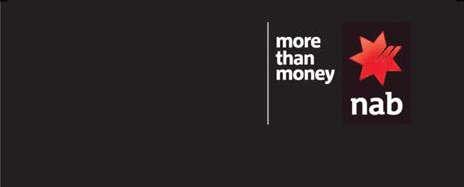

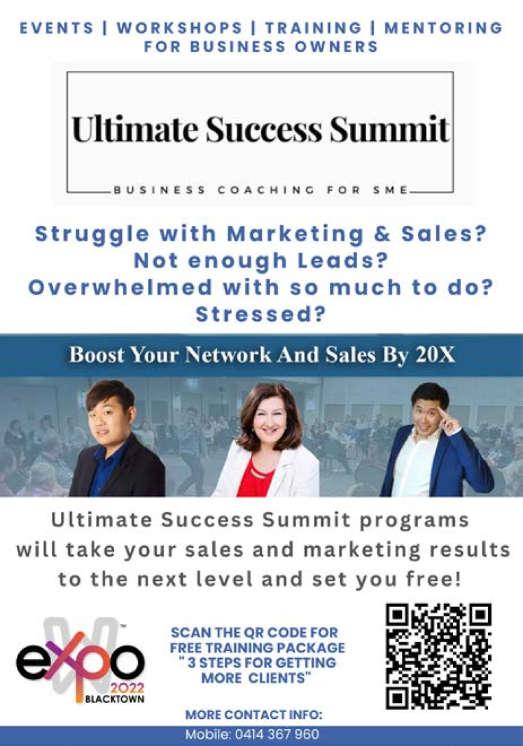





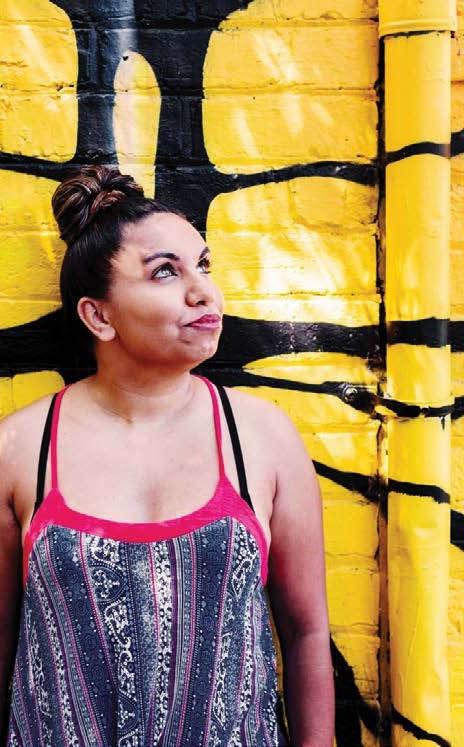


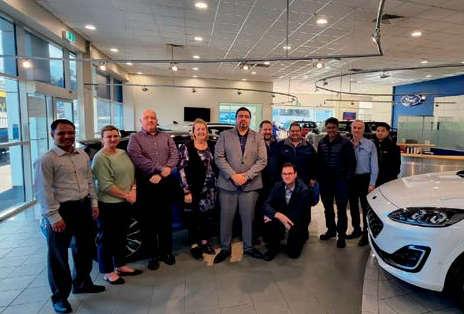




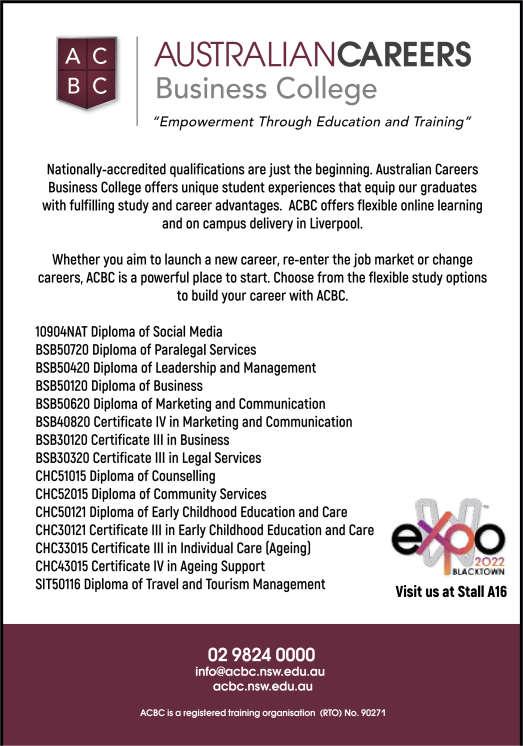

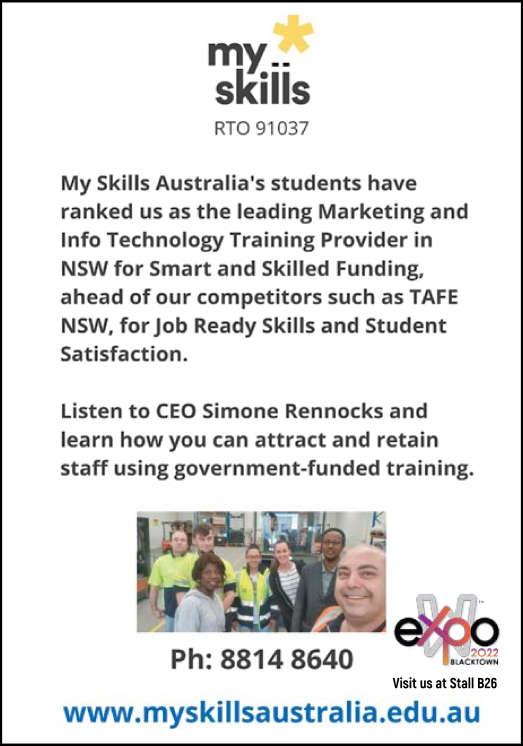




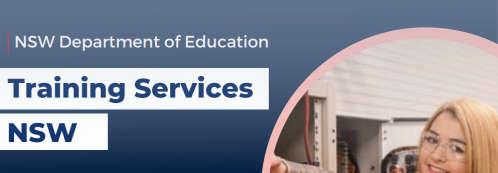




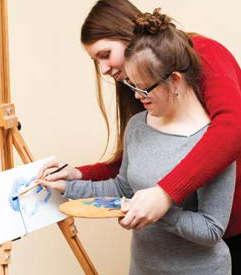

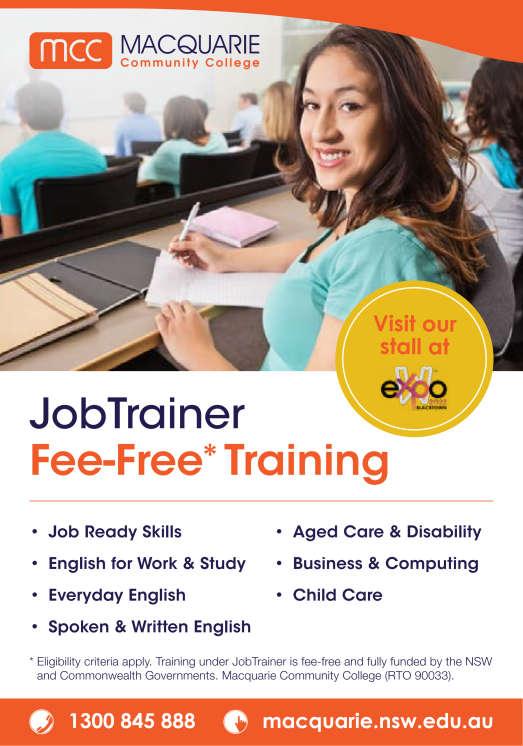


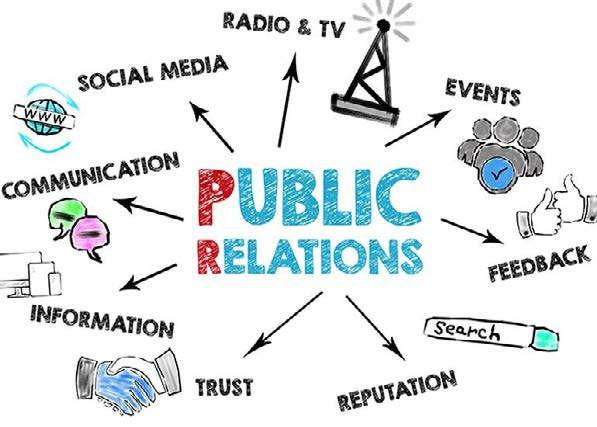
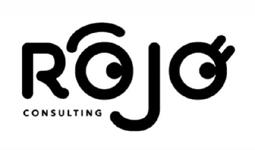


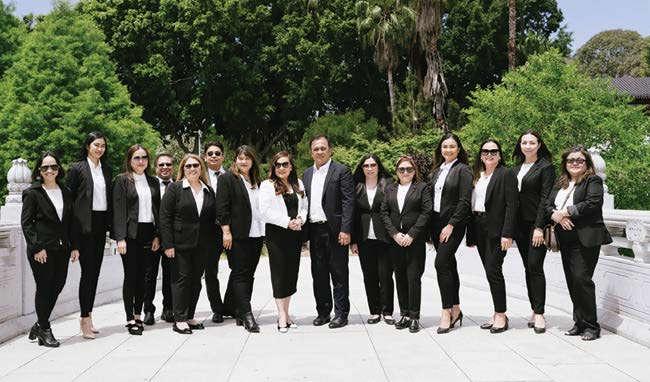
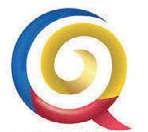


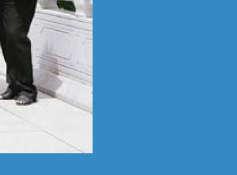


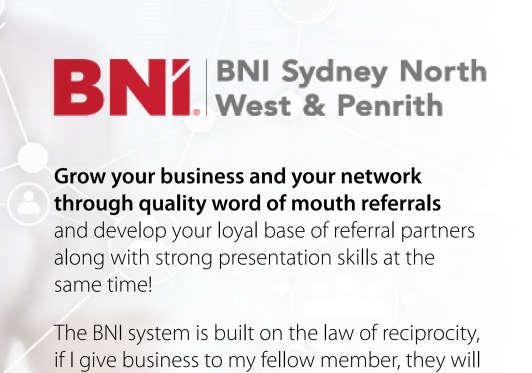
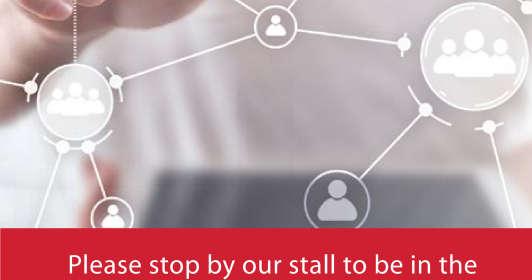

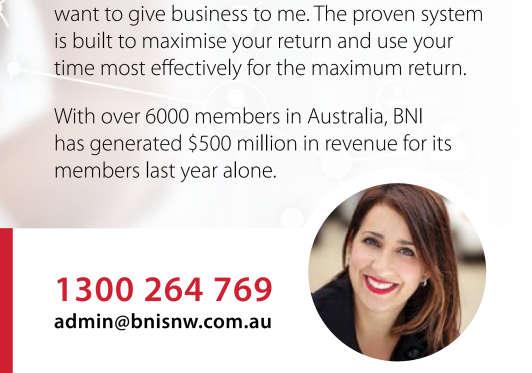
 Shop 1035A Westpoint Blacktown 17 Patrick St Blacktown | NSW 2148 and the phone number: 02 8814 9387.
Shop 1035A Westpoint Blacktown 17 Patrick St Blacktown | NSW 2148 and the phone number: 02 8814 9387.

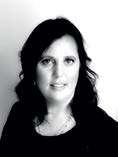

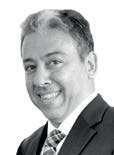



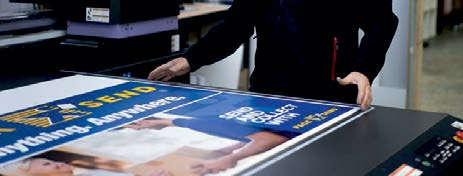

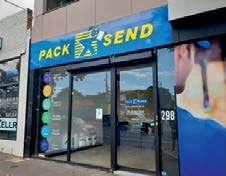














































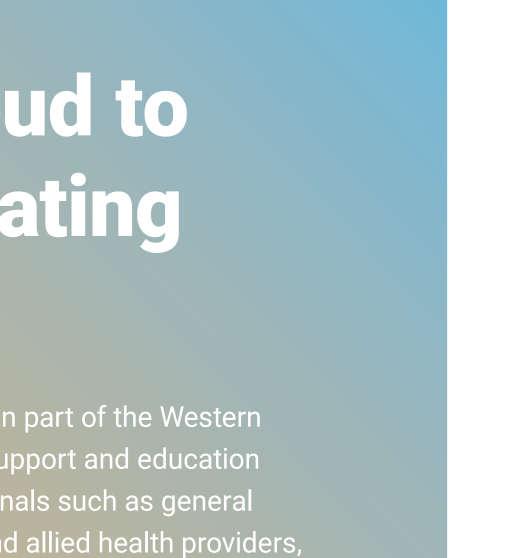
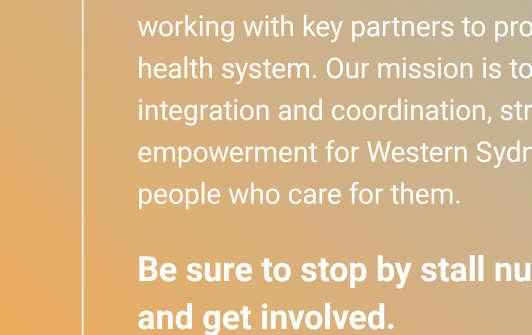








Since 1985, SydWest Multicultural Services has supported diverse refugee and migrant communities across the Greater Western Sydney. We support people of all ages and cultures, with a focus on the vulnerable and most in need.
Specialising in the provision of culturally responsive care, we recognise culture and language is key to building community connections and empowering people to reach their full potential.
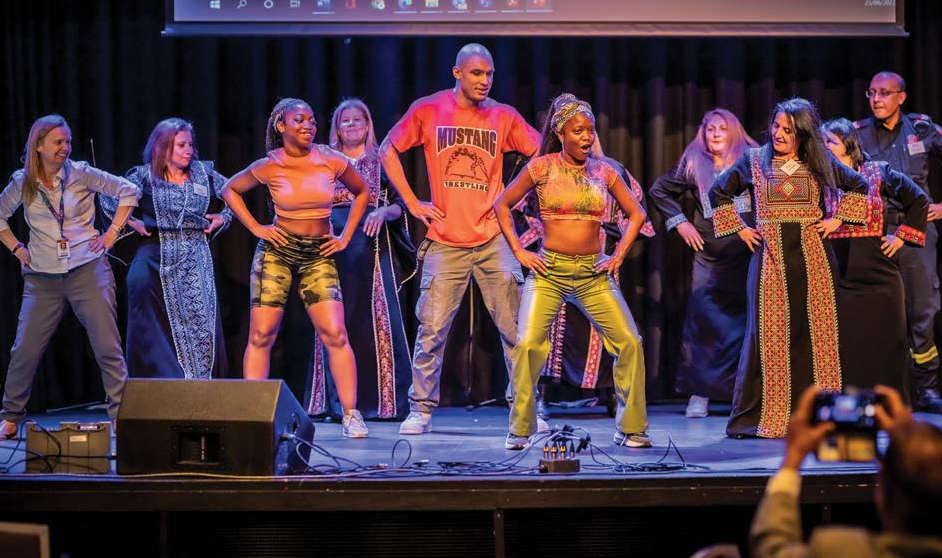
From our youth and family services, including domestic violence support, settlement and housing support services, employment and training, to our home care and disability services, there is a program or service for every member of the family.
• SydWest Home care for seniors • Youth
• SydWest Disability services • Settlement services
• Women and families • Support with housing
• Employment and training
Come and visit our SydWest Multicultural Services stall at the Wexpo to speak with our friendly team. Keep an eye out as we launch our rebrand with a vibrant new look!